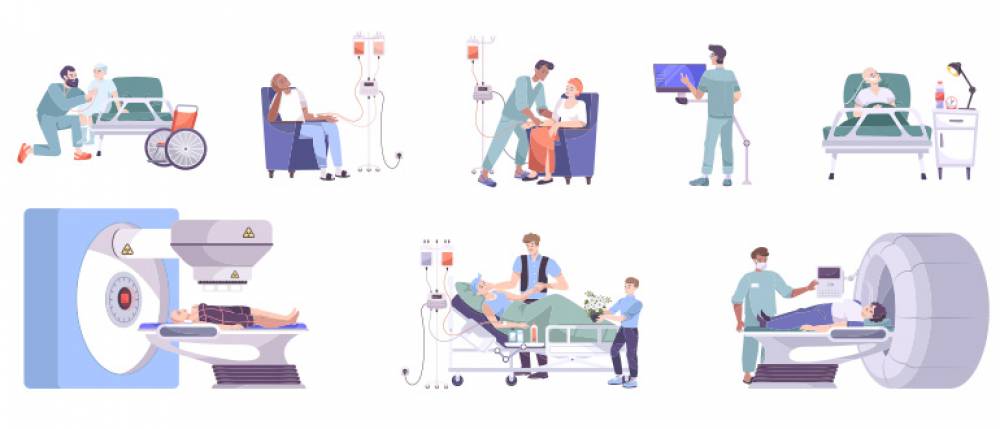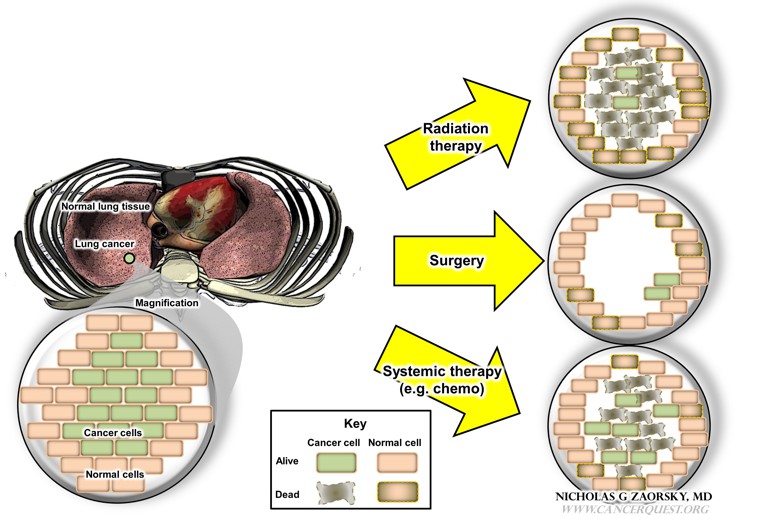Arogyajivan Medical Tourism For Oncology for Dummies
Arogyajivan Medical Tourism For Oncology Fundamentals Explained
Table of ContentsNot known Factual Statements About Arogyajivan Medical Tourism For Oncology Little Known Facts About Arogyajivan Medical Tourism For Oncology.The Of Arogyajivan Medical Tourism For OncologyThe Greatest Guide To Arogyajivan Medical Tourism For OncologyThe smart Trick of Arogyajivan Medical Tourism For Oncology That Nobody is Talking AboutThe Basic Principles Of Arogyajivan Medical Tourism For Oncology All About Arogyajivan Medical Tourism For Oncology
If you have cancer cells, your healthcare company will advise one or even more methods to treat the condition. One of the most common therapies are surgical procedure, radiation treatment, and radiation. Other options consist of targeted therapy, immunotherapy, laser, hormone therapy, and others. Below is a review of the different therapies for cancer and how they function.Cancer cells grow and separate faster than typical cells in the body. Because radiation is most hazardous to quickly expanding cells, radiation therapy damages cancer cells extra than typical cells. It uses materials made by the body or in a lab to assist the immune system work harder or in an extra targeted way to combat cancer.
Some have toxins or contaminated substances affixed to them. Immunotherapy is provided by IV. Hormonal agent therapy is made use of to treat cancers cells that are fueled by hormonal agents, such as bust, prostate, and ovarian cancers. It makes use of surgery, or medications to stop or obstruct the body's all-natural hormones. This aids slow down the development of cancer cells.
The medicines are provided by shot or as pills. Hyperthermia uses warm to damage and eliminate cancer cells without harming typical cells. It might be used for: A little location of cells, such as a tumorParts of the body, such as a body organ or limbThe whole body The warmth is delivered from a maker outside the body or through a needle or probe put in the tumor.Laser treatment uses an extremely slim, concentrated beam of light to ruin cancer cells. Thin fibers at the end of the tube guide the light at the cancer cells. Lasers are most commonly used with other types of cancer cells therapy such as radiation and chemotherapy.
The Definitive Guide to Arogyajivan Medical Tourism For Oncology

An oncologist is a cancer physician. These healthcare companies specialize in oncology the branch of medication that concentrates on diagnosing, hosting and dealing with cancer cells. AdvertisementCleveland Facility is a non-profit academic clinical facility. Advertising and marketing on our site helps sustain our objective. We do not back non-Cleveland Clinic services or products. A visit to an oncologist gives you an opportunity to speak with a specialist that understands what you're going via.
They prepare to help, and they'll stroll with you every action of the way. Oncologists can: Run tests to detect cancerOffer a second point of view on a previous diagnosisIdentify treatment optionsDiscuss each choice's advantages and side effectsOversee cancer treatmentManage post-treatment care Seeing an oncologist does not always imply you have cancer cells. An oncologist obtains involved if you have signs that could be cancer.
The smart Trick of Arogyajivan Medical Tourism For Oncology That Nobody is Talking About
Several cancers cells are a lot more treatable in the early stages. Cancer is a complex disease.
Radiation can reduce tumors prior to surgery or eliminate remaining cancer cells after surgery. You may have radiation as a stand-alone therapy or in combination with various other treatments.
4 Simple Techniques For Arogyajivan Medical Tourism For Oncology
Do I have cancer? The length of time have I had it? What will my life look like currently? If these are the concerns racing through your mind, you're not alone. Your oncologist is right here to aid you navigate these emotions. During your first go to, your oncologist will: Ask you to explain your signs in detailDo a physical examReview your medical documents, including family members history and any web link kind of past or present wellness conditionsRun any kind of essential examinations (like imaging examinations or lab job) to read more about your symptomsDetermine whether you need a biopsyOnce your oncologist gathers the information they require, they'll: Discuss the results of your testsSend their searchings for to the health care service provider that referred youTell you whether you have cancer and if so, what kindTalk to you regarding different treatment optionsListen to your problems and anxietiesGive you sources that can offer support and extra informationYour initially oncology browse through might occupy to three hours.
Oncology is the research of cancer. Specialists educated in oncology supply care for individuals that are at threat for cancer, being dealt with for cancer, and living with cancer after therapy.

Some Of Arogyajivan Medical Tourism For Oncology
Some types of cancer cells take place most frequently in these more youthful age teams. When these kinds of cancer cells occasionally happen in adults, those adult clients may choose to work with a pediatric oncologist.

Sometimes, a medical oncologist could be the very first expert a patient sees. Occasionally when cancer is believed but not diagnosed, an oncologist may additionally be involved. Some people with blood conditions that might or may not be malignant may be described a hematologist oncologist. Many individuals will certainly proceed seeing their oncologist for follow-up appointments to inspect for indicators of cancer cells coming back and to take care of any side effects from treatment.
The Definitive Guide to Arogyajivan Medical Tourism For Oncology
If you have a cancer medical diagnosis and are weighing your treatment options, take into consideration joining a scientific test. Although they might seem frightening at initially, scientific trials can be extremely valuable no matter what kind or phase of cancer cells you have. Benjamin Levy, M.D., professional director of the Johns Hopkins Kimmel Cancer Center at Sibley Memorial Hospital and a lung cancer researcher, clarifies several of the reasons to sign up with a medical trial.